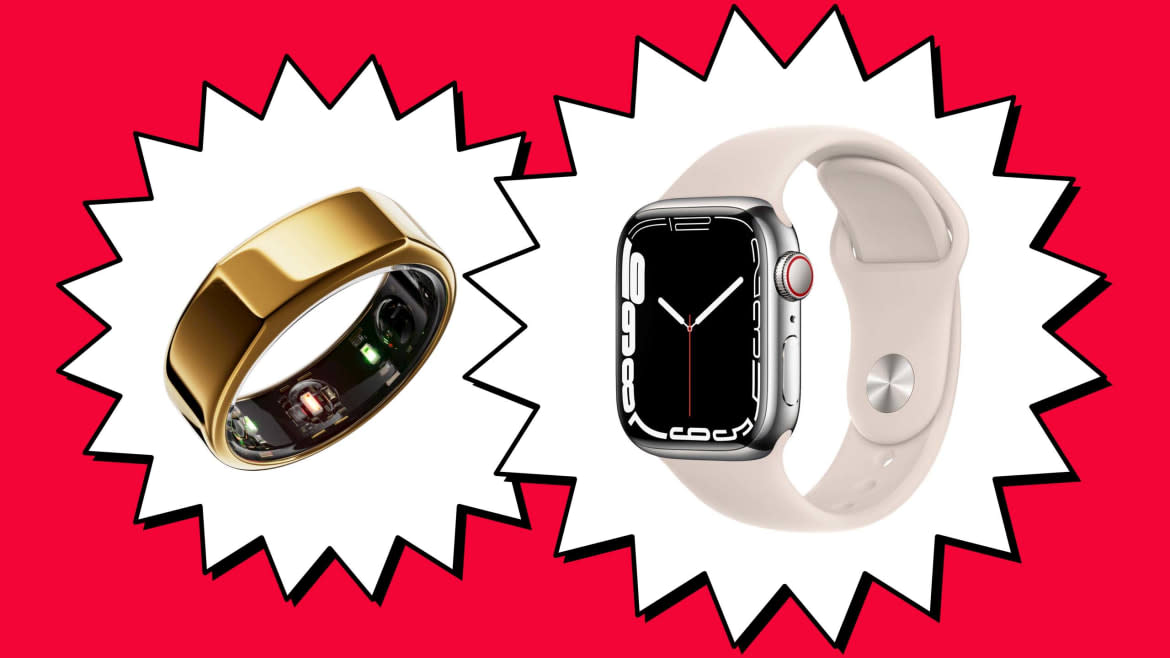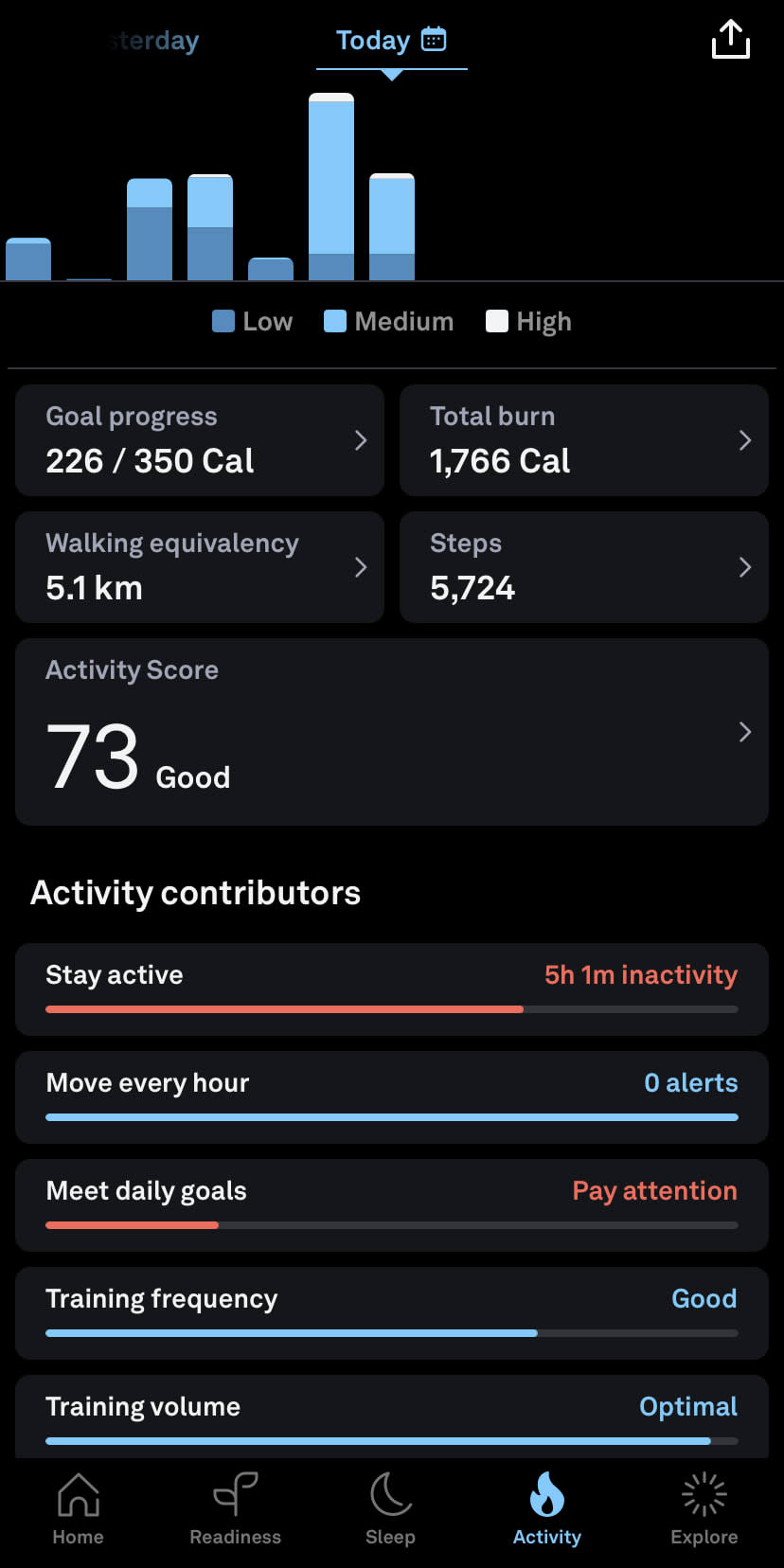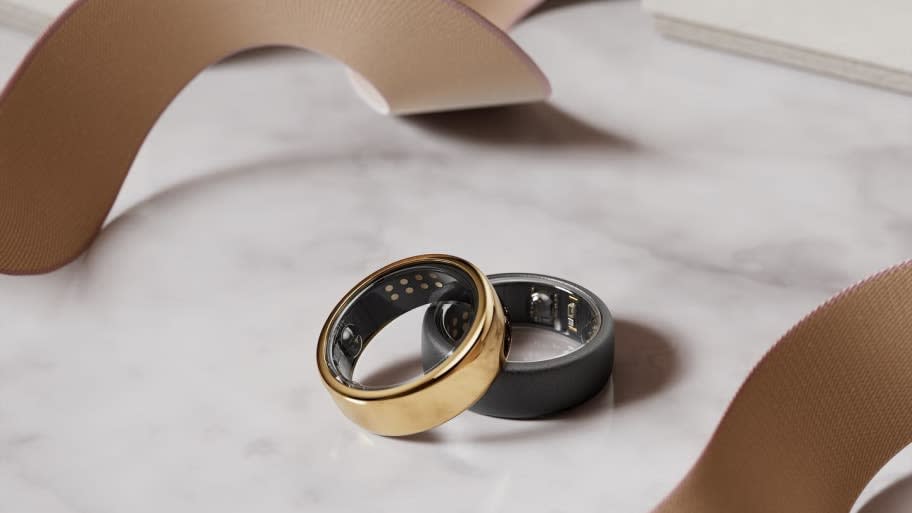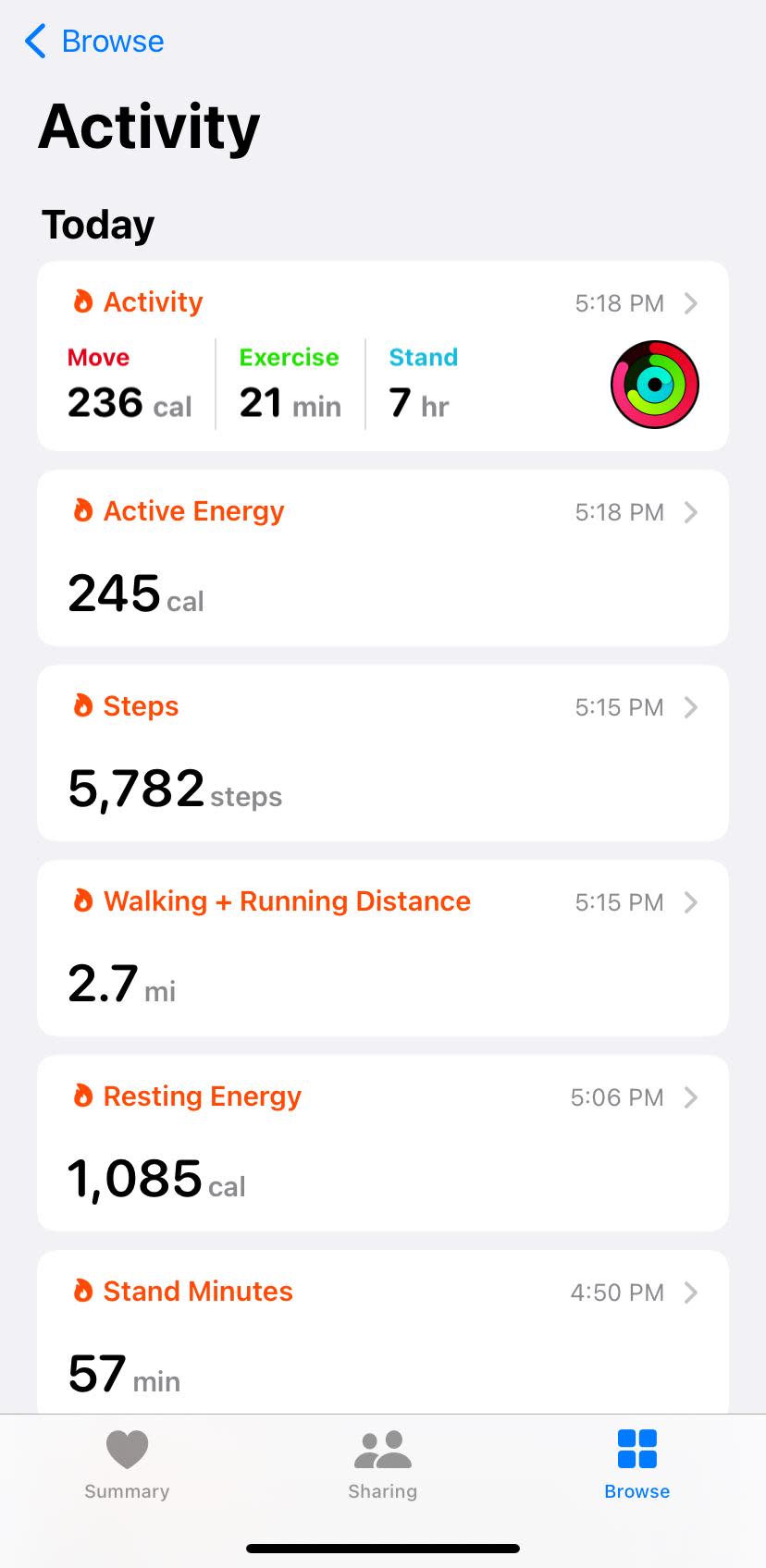I Tested the Oura Ring and the Apple Watch—Here Are My Thoughts

Scouted selects products independently. If you purchase something from our posts, we may earn a small commission.
When it comes to fitness tracking and health monitoring wearables, there have never been more options on the market to choose from. The O.G. FitBit and Apple Watch have been the gold standard for several years now, but in recent years, a sleeker alternative has emerged: the Oura Ring. To my knowledge, The Oura Ring is the first and only health tracker that isn’t worn on the rest, which is majorly appealing to someone like me who detests the bulky look and feel of traditional wrist wearables.
I finally gave into investing in the ubiquitous Apple Watch Series 7 after my husband had told me about a news story in which a woman who was wearing the latest model of the Apple Watch got a notification of irregular heart rate, which lead her to seek medical treatment for what turned out to be a stroke. As a recovering hypochondriac (kidding... kind of), I figured that I could put aesthetics aside for a watch that could potentially save lives.
I’m lucky enough to own both the Apple Watch Series 7 and the Oura Ring Gen 3, so I figured I would go ahead and make a side-by-side comparison of the two health wearables to see which one I preferred based on several factors. To address the pink elephant in the room, it goes without saying that the Apple Watch is much more than just a health tracker, so it’s able to do a lot of other things that the Oura Ring cannot (take calls, sound alarms, etc.), so for the purpose of this review, I’ll just be looking at the health components of each device. First, let’s take a peak at the basics of each wearable.
The Oura Ring:
Price: $299 (Horizon); $349 (Heritage); Gold ($499); Rose Gold ($549).
Health functionalities: sleep tracking, heart rate tracking, 24/7 body temperature, period prediction, calorie tracking, blood oxygen, and steps and activity monitoring.
Sensors: optical heart rate, body temperature, accelerometers.
Battery life: 4-8 days.

Pros:
Long battery life,
Attractive look,
Lightweight feel
It can be worn in the shower or when washing your hands,
Accurate sleep data,
Records heart rate data while sleeping
It can be used with both Apple and Android phones
It comes with a free sizing kit to ensure the utmost accuracy
It’s water-resistant up to about 330 feet (you don’t need to take it off to shower or wash your hands).
Cons:
It doesn’t have a timer or screen interface directly on the device.
It costs $6 a month for a membership to access all health data.
Oura Ring Gen 3

The Oura Ring is worn on your finger and, as such, does not have a screen like the Apple Watch. To view the dashboards and see your health data, you must download the app and sync it with your smartphone.
Buy Oura Ring Gen 3 at Oura, $350
Apple Watch (Series 7):
Price: $150-$800 (I paid $300 for my Apple Watch Series 7 on sale).
Health functionalities: sleep tracking, heart rate tracking, activity tracking, calorie counter, blood oxygen monitoring, sleep counter, ECG.
Sensors: optical heart rate, sleep tracking, accelerometers, gyroscope, and altimeter.
Battery life: Up to 18 hours (but more like 14-16, in my experience).

Pros:
It has its own screen, so even if you have a cracked iPhone or an old model, you can still reap the benefits.
It senses when you’re doing a workout (not sure how) or on a walk and can tell whether it’s indoor or outdoor (again, not sure how).
No membership fees are required.
Water-resistant up to 50m.
Cons:
Bulkier design and feel.
Short battery life. Realistically, it needs to be charged daily like an iPhone.
Because it needs to be charged more often, I find myself forgetting to put it on in the morning, which skews the data.
Apple Watch Series 7 (GPS + Cellular, 45MM)Down from $720

Aside from the Apple Watch’s other functionalities, its health tracking and sensor functionalities are pretty next-level (depending on the series and model that you go with).
Buy Apple Watch Series 7 (GPS + Cellular, 45MM) at Amazon, $350
Buy Apple Watch Series 7 (GPS + Cellular, 45MM) at Best Buy, $349
What the Experts Say:
While I definitely have my own opinions based on my experience, health experts seem to have a more neutral stance weighing the benefits of each device. “Based on the studies that have been conducted evaluating the accuracy of these two devices, I think what’s clear is that there are certain statistics that both devices do an excellent job of measuring and others where there’s room for improvement. Heart rate and oxygen levels, for example, are something that the Apple Watch and Oura Ring are both good at tracking, while calories burned (also called energy expenditure) is something neither device estimates particularly well,” says Dr. Valerie Ulene, MD and Co-Founder of Boom Home Medical.
On the other hand, some believe that the Oura Ring may yield more accurate heart rate results because it fits closer to the finger and because doctors measure your heart rate using your finger. “The ring’s form factor was chosen because the finger provides a stronger heart rate signal than any other place on the body. The ring takes bio measurements directly from the arteries in the finger whereas smartwatches (or wrist wearables) sit on the top of the wrist, farther away from the arteries that are on the bottom of the wrist,” Karina Kogan, Chief Marketing Officer at Oura says.
“The one area of health and wellness where the Oura Ring appears to have a proven advantage over the Apple Watch right now is sleep. An Australian study published last year showed that, while both devices are relatively good at assessing the total amount of time someone spends asleep, the Oura ring is better able to differentiate the amount of time spent in different sleep stages, such as deep sleep and REM sleep,” says Dr. Ulene.
Overall Thoughts:
Overall, the slim and sleek design of the Oura Ring makes it the winner for me. However, as I’ve explored my Apple Watch more (and have gotten into the annoying habit of having to charge it every night alongside my phone), I realize that its offerings go way above and beyond Oura Rings’. And while it’s not a huge fortune, paying $6 a month to access “premium” health data feels... unnecessary. If I had to choose between the two for myself, I would go with Oura Ring. However, if you’re looking for a health-tracking device that is on the pulse (quite literally) of technology, you might want to opt for the Apple Watch—just be prepared for your device to die or become obsolete in two years; it’s the Apple way, after all.
When it comes down to it, both are awesome devices that offer pretty accurate data and are easy to use. The bottom line really comes down to preference. As Dr. Ulene puts it, “Ultimately, the ‘better’ wearable device is the one that will be worn more regularly. For some people, that will be a ring. For others, a watch.” For me, that’s going to be the Oura Ring.
Don’t forget to check out our coupon site to find more health and fitness deals, including Vitacost coupons, Dick’s Sporting Goods coupons, Walmart coupons, and Macy’s coupons.
Get the Daily Beast's biggest scoops and scandals delivered right to your inbox. Sign up now.
Stay informed and gain unlimited access to the Daily Beast's unmatched reporting. Subscribe now.

